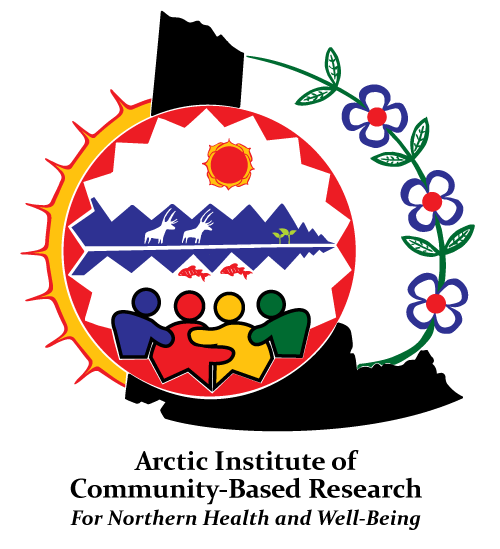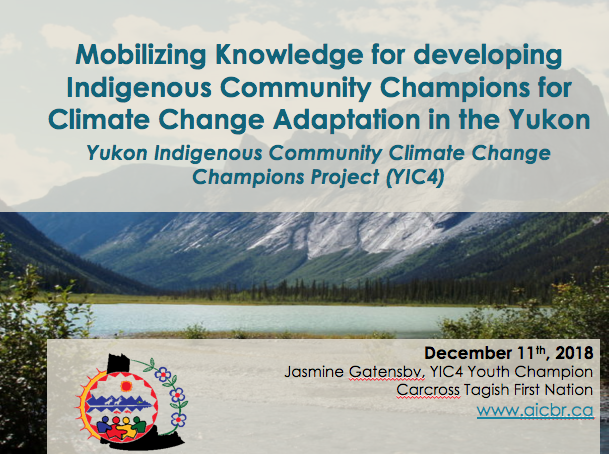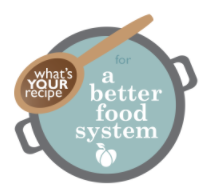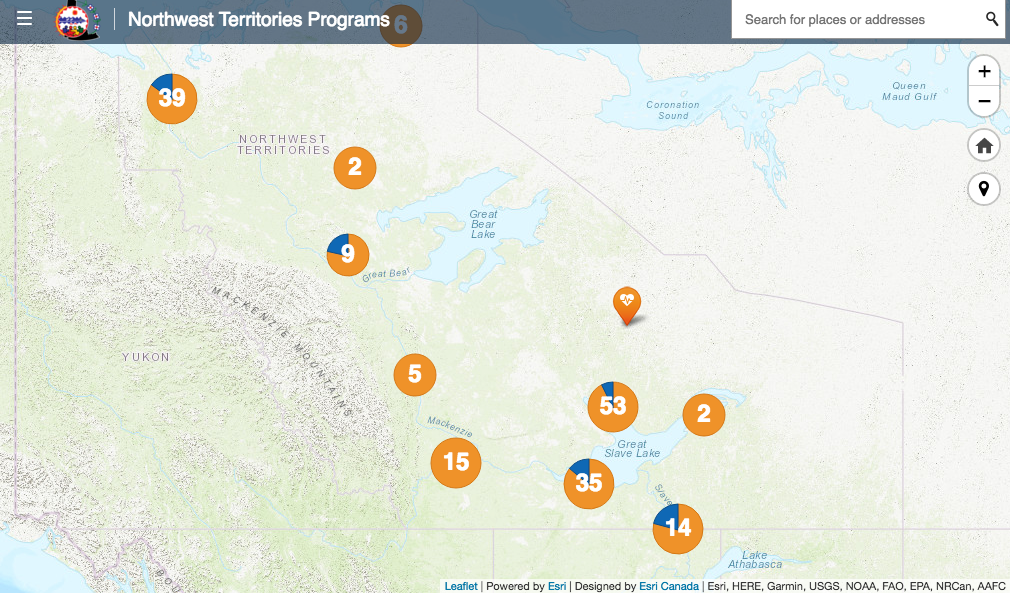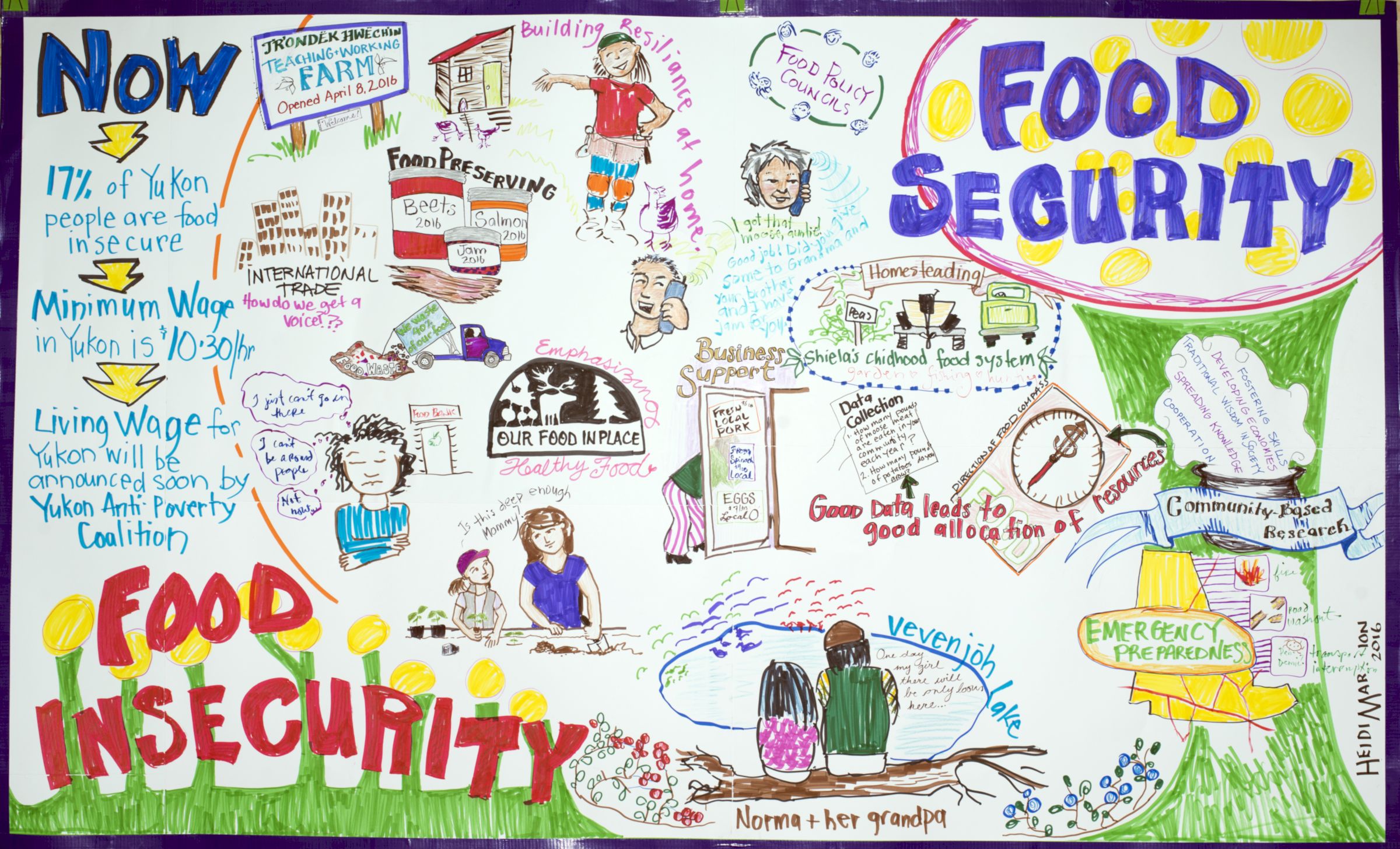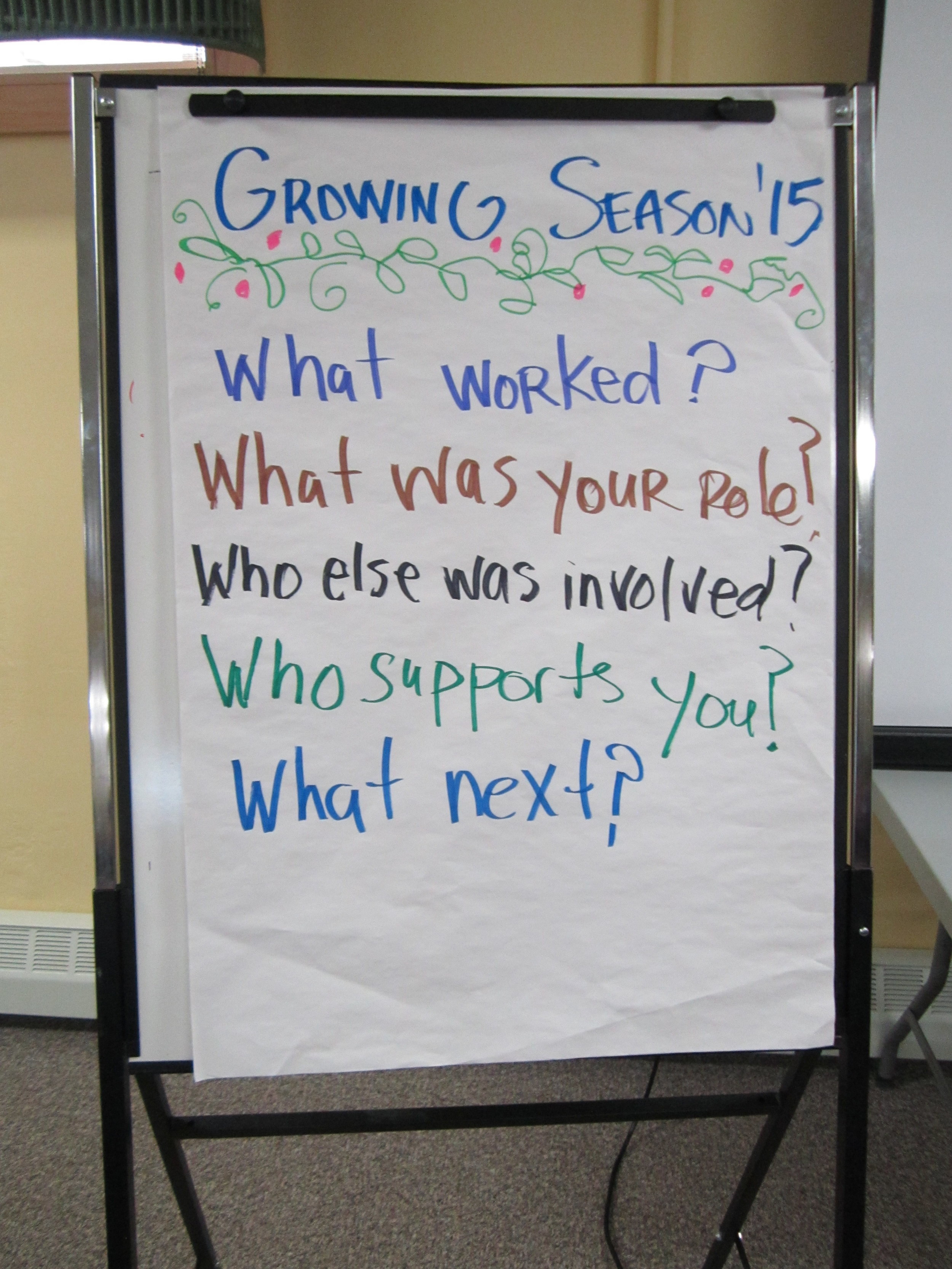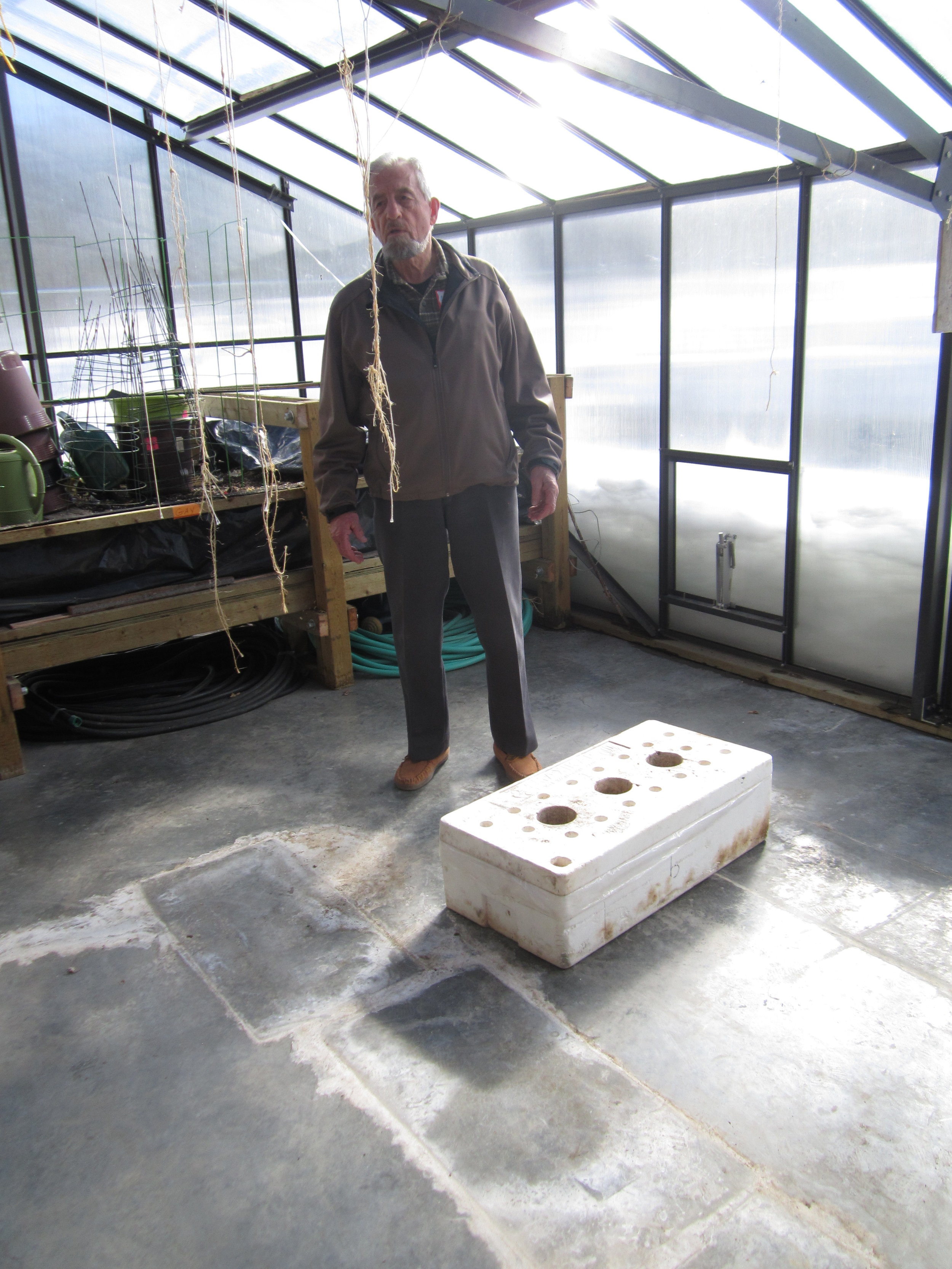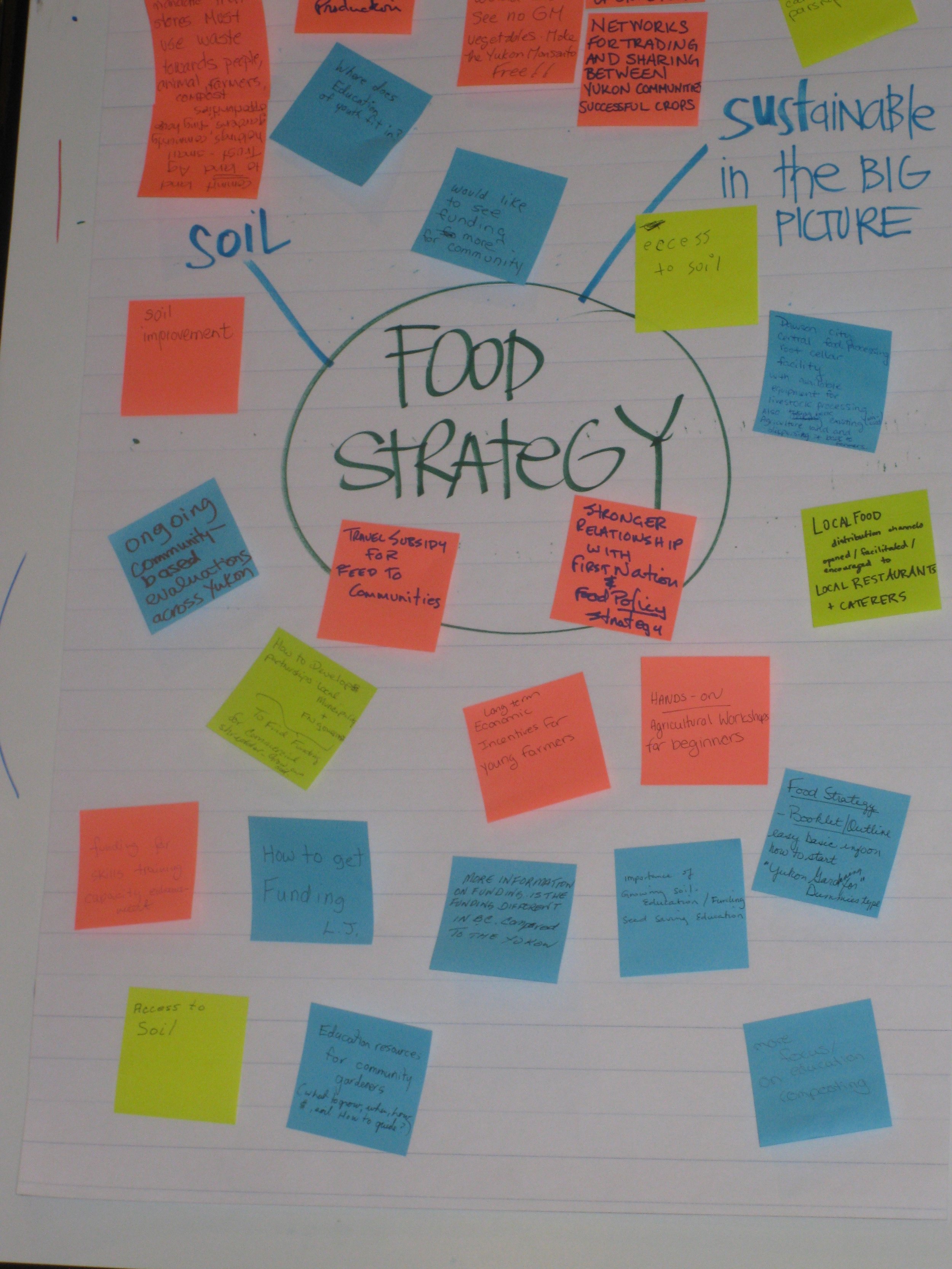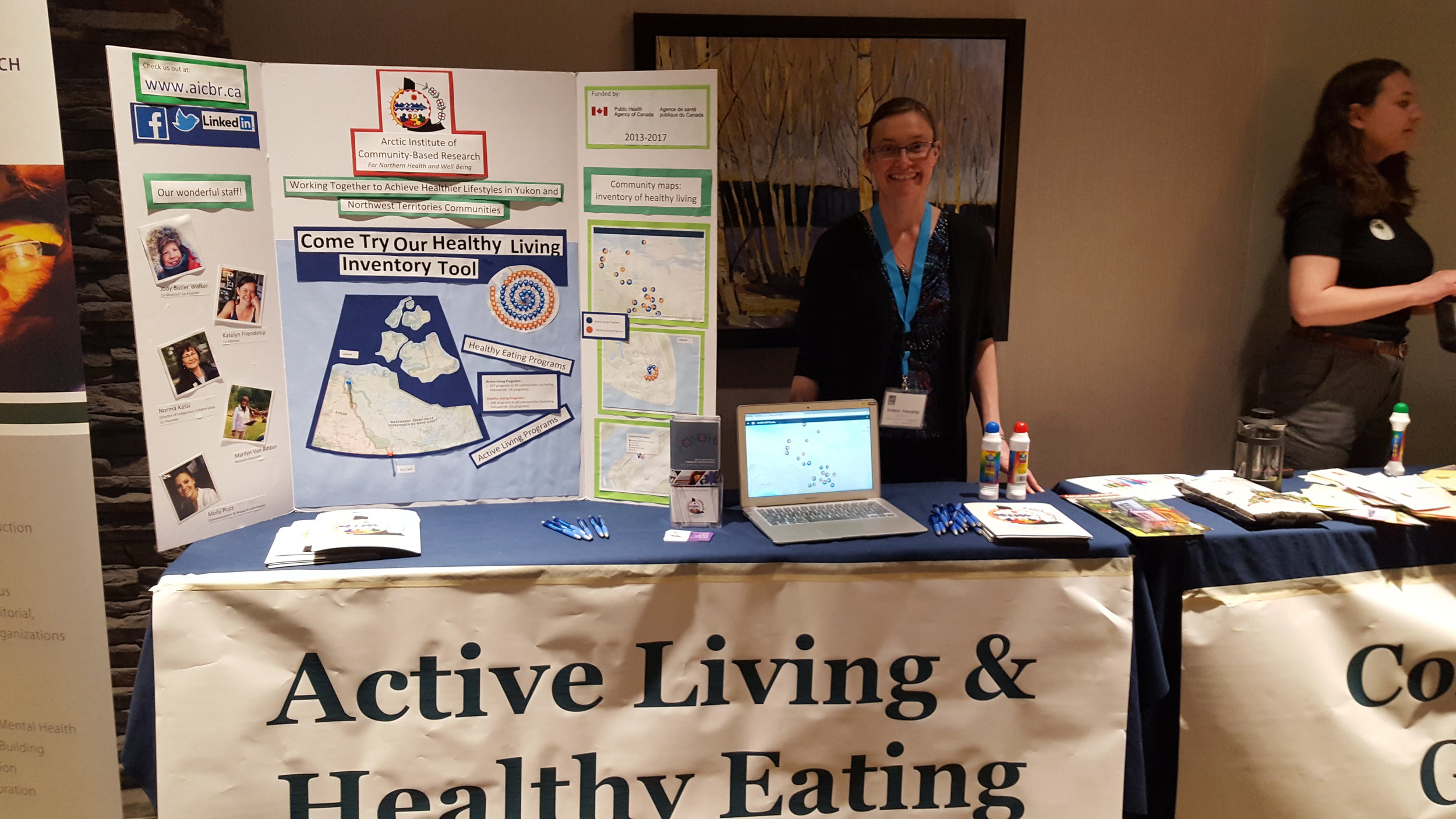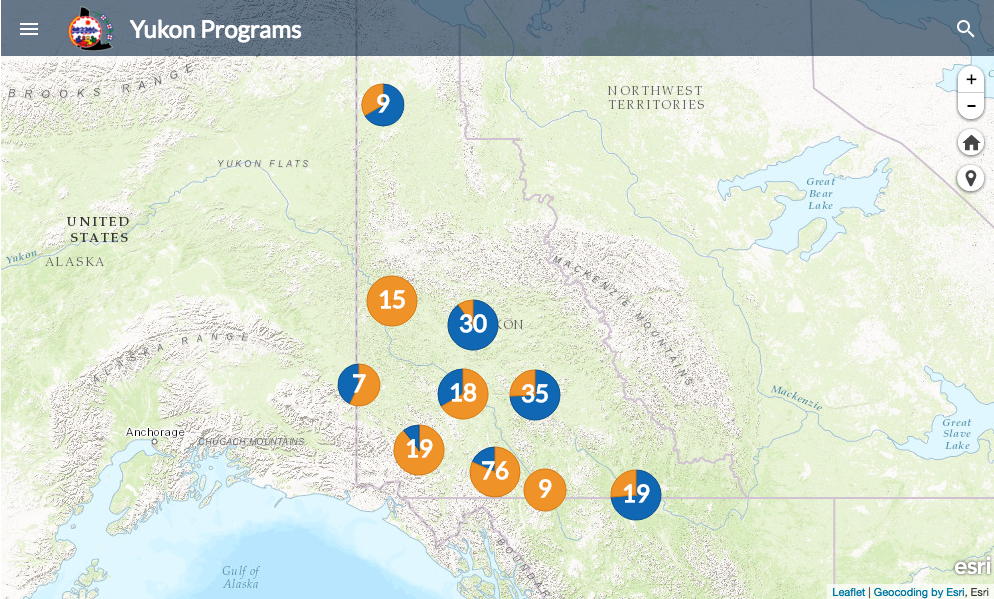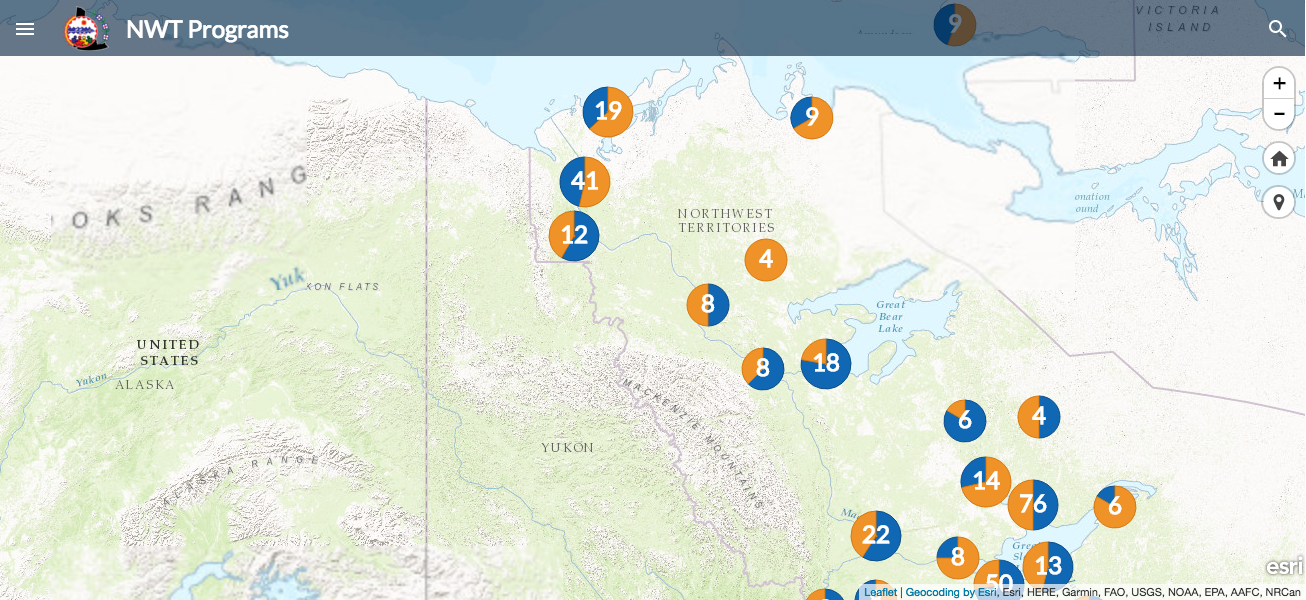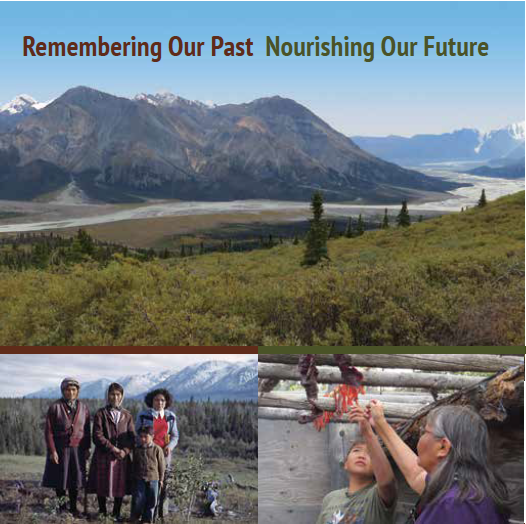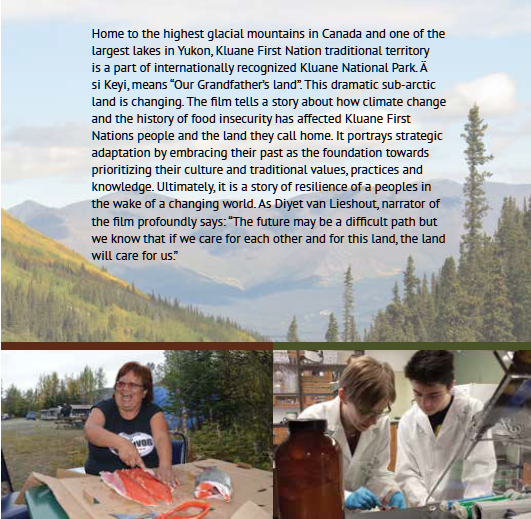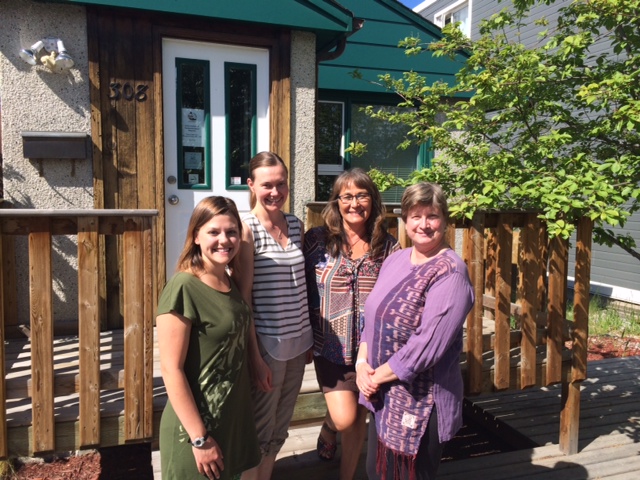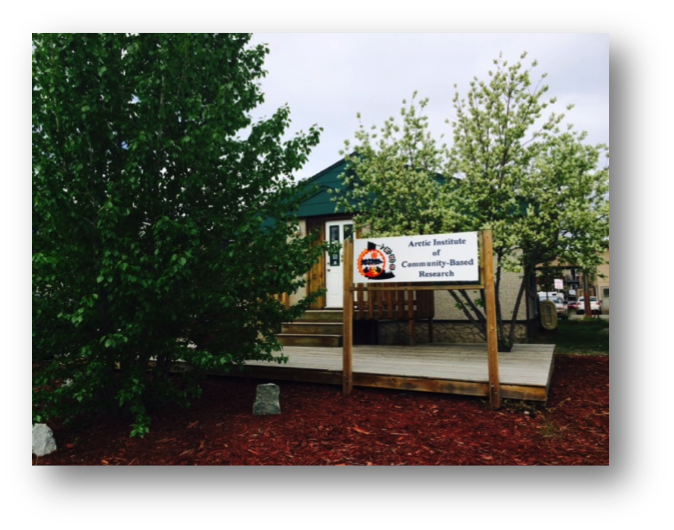CHECK OUT OUR MOST RECENT NEWS!
- A NEW TEAM -
We're pleased to wELCOME THREE NEW team members to AICBR:
Coral Voss, Executive Director
Coral joined AICBR in May 2018 as Executive Director. Her research has been focused on climate change, knowledge co-creation and relational bridging between knowledge systems. Coral brings more than 20-years of administrative experience to her role at AICBR. She recently completed three years of a PhD in Indigenous Studies at Trent University and holds both a Master’s in Environmental Studies and Master’s diploma in Environmental/Sustainability Education from York University. Prior to that, she completed an Interdisciplinary BA in Conservation Biology and Anthropology from the University of British Columbia.
Kylie Campbell, Project Coordinator
Kylie joined the team in September 2018 as Project Coordinator. She has an extensive background in finance management and business and is a passionate volunteer and outdoor enthusiast. Her work focuses on the coordination of projects related to Indigenous education, youth programming and climate change adaptation.
Julia Veidt, Administrative Research Assistant
Julia joined AICBR in October 2018 as Administrative Research Assistant. She received her Honours Bachelor of Arts and Science (minors in Biology and International Development) from the University of Guelph and has extensive experience working with youth as a tutor and competitive swim coach. She is excited to apply her knowledge and background in working with youth leaders to improve community social and environmental health.
Click here and get acquainted with the whole team!
- A FAREWELL -
Earlier this year, AICBR's Co-Founder and longtime Executive Director and Co-Director (2015-17), Jody Butler Walker decided to step down for family reasons. We wanted to take the time to offer a special tribute in recognition of her work over the last 12 years, which has built a solid foundation from which AICBR continues to grow and learn from.
Thank you Jody from all of the AICBR family!
Here is Jody's story:
My love of the North began a number of years ago as a summer research assistant at Truelove Lowland on Devon Island in the High Arctic. The 24 hour daylight, rafted sea ice, musk ox and foxes near camp and the incredible array of birds created an environment that to me felt like ‘coming home as if for the first time’. I knew then that I wanted to live and work in the Far North for many years to come.
Since then, I’ve lived and worked in all three Territories: 6 years/field seasons in Resolute Bay, NU as a marine biologist; 9 years in Yellowknife leading the community-based development of a large scale exposure baseline for environmental contaminants in mothers and their newborns’ blood, and the past 20 years living in the Yukon.
Thirteen years ago, I accepted an invitation to contribute to a CIHR-funded Team Grant, with seed funding to lead the development of health research capacity in the Yukon.
Soon after, I invited Norma Kassi into the Yukon’s part of the grant. I believed that by combining Norma’s Traditional Knowledge and considerable expertise together with my western academic training and northern experiences, we could develop something unique, relevant and useful. From the beginning, this ‘two-eyed seeing’ approach was incorporated in both the conceptual and hands-on work of co-developing the Arctic Institute of Community-Based Research (AICBR).
The early and ongoing commitment of AICBR was to contribute to reducing health inequities in Yukon, particularly among and with Yukon First Nation communities, and to use inclusive, participatory, community-based approaches towards relevant and timely outcomes.
One of the foundations of community-based research is that the work focusses on the priorities of those who are intended to benefit. Accordingly, in the summer of 2007, Norma and I rented a pick-up truck and drove to some of the General Assemblies taking place in Yukon First Nation communities, and met with others at various gatherings and meetings. We asked people “what are your priorities for the health of your communities that research could help to improve?”. The answers resulted in five key priority areas: Residential School Trauma, Food Security, Diabetes, Depression and Substance Use. Injury Prevention and Climate Change Adaptation were subsequently added. The AICBR team was guided by these priorities as we sought funding and partnership opportunities to co-develop relevant projects with interested Yukon First Nation communities and others.
The resulting body of work is reported on AICBR’s website (www.aicbr.ca), and is the product of a tremendous amount of work by extremely talented and dedicated staff, communities and partners.
As I’ve now stepped down for family reasons, I give sincere thanks to the AICBR Board, current and past staff, communities and community partners, Indigenous, local, regional, territorial, and federal governments and academic partners for all our work together, and wish AICBR the very best going forward!
Jody
- WE’RE BUILDING NEW MAPS! -
Mapping Climate Change and Northern Food Systems!
Building off of the success of the Healthy Living Inventory, we are currently developing two new inventory tools which will map out important information on climate change and food systems initiatives. These online maps will help to mobilize information, connect communities and strengthen potential partnerships for climate change action and food security promotion.
These maps are being created as part of the 'YIC4' (2017-2018) and 'Linking a Changing Climate with a Changing Traditional Diet: Mobilizing Knowledge for Adaptation' (2017-2019) projects.
The finalized inventory mapping tools will be shared with communities through community workshops and through development of other knowledge products in the hopes of inspiring community action; they will also be shared with policymakers and partners across the North to help inform future policy, funding areas and programs for climate change adaptation and food systems development in the North.
The inventory map applications are currently in the process of being published and will be available by the end of the year at: https://www.aicbr.ca/climate-change-and-food-systems-inventories/
- YOUTH TRAINING -
Gearing-up for another Youth Training as part of the Yukon Indigenous Community Climate Change Champions Project!
This two-year project focuses on training Yukon First Nations youth, aged 18-30 years on climate change and leadership skills for gathering and mobilizing new and existing knowledge for climate change adaptation in the Yukon. In total, 29 participants are taking part in the project (21 Yukon First Nations youth, six Indigenous youth from Northern BC, NWT and Nunatsiavut. The project entails two training sessions hosted in Whitehorse, individual community-based climate change assessments and the creation of a Yukon First Nations Climate Change Adaptation Network (YFN-CAN) andclimate change inventory map.The overall goal of this initiative is to build upon Yukon First Nations communities' capacity to respond to complex issues related to climate change, utilizing both Indigenous and western scientific knowledge.
Last year (November 2017), we hosted the first iteration of the training which set the foundation for youth to conduct a climate change assessment in their communities. A youth toolkit for guiding the assessment was also produced and will be posted on our website soon! Throughout the summer, we worked with youth in several communities to facilitate hands-on training and deliver the assessment which focused on exploring/identifying climate change adaptation needs, opportunities and priorities related to five key theme areas:food & water security; infrastructure & transportation; health, social and culture; species & habitat areas; and economy. These assessments will help guide the youth in defining future projects for climate change action.
January 21-24th, 2019, the original group of youth will be joined by a new cohort for another four-days of training in Whitehorse. This training session will focus on building upon research skills and exploring the community assessments as well as developing leadership and communications for advocacy.
(Click image on the left for more info on the upcoming training).
To learn more about the outcomes so far and read the project newsletters, visit: https://www.aicbr.ca/yic4
- JUST PUBLISHED -
Check out our story map of the Working Together to Achieve Healthier Lifestyles in Yukon and Northwest Territories' Communities project (2013-2018). This story tells of the some of the food security and healthy living initiatives that AICBR and its partners have been involved in over the last five years - https://arcg.is/vyqWH
- OTHER NEWS -
Here are some updates from OTHER INITIATIVES WE’RE INVOLVED IN AS well as some exciting presentations we have been making near and far!
Over the past year, Norma has been traveling to Yukon communities and talking with Yukon First Nations as well as others at the national level about two developing initiatives which seek to advance Indigenous rights and sovereignty: the Indigenous Leadership Initiative (ILI) and the Canadian Mountain Network (CMN). These are both very exciting initiatives and AICBR sees great potential in the growth and success of this work to contribute towards healthy, sustainable and prosperous communities across Canada.
The Indigenous Leadership Initiative (est. 2013) is comprised of a group of Indigenous leaders from across Canada dedicated to facilitating the strengthening of Indigenous nationhood; the main focus of the ILI’s work to date has been to advance the creation of a National Indigenous Guardians Network. In fulfillment of its mission, ILI also works in the related areas of Land Use Planning, Governance and Resource Planning.
Norma, an Advisor to the group, has been assisting with the support, outreach and communications around the emerging National Indigenous Guardians Network and advancement of ILI priorities, as well as assessing priority alignment for Yukon First Nations communities.
For more about the Indigenous Leadership Initiative, please visit: https://www.ilinationhood.ca/
WHO ARE INDIGENOUS GUARDIANS?
https://www.youtube.com/watch?v=q4W1gTWcut0&feature=youtu.be
We have been working with the Yukon Government, University of Alberta, members of the Yukon CMN Working Group, and Yukon First Nations, among other communities and partners across Canada since the summer of 2017 to develop the Canadian Mountain Network’s full application to the Networks of Centres of Excellence (NCE) competition. In November 2017, our application was accepted at the Letter of Intent stage and the full proposal and adjudication process was later completed in the summer. If the proposal is approved by the NCE committee, the Canadian Mountain Network (CMN) will fund critical mountain research projects over the network’s five-year lifespan.
As Co-Research Director of this proposed network, Norma and her team at AICBR are very excited about the potential for this project to support community-driven and Indigenous-led research activities. The network will fund three different modes of research: researcher-led, partnership-driven and Indigenous-led projects. We believe that this third mode—Indigenous-led— is most innovative for a network as it advances research in the spirit of Reconciliation.
http://canadianmountainnetwork.ca/
AICBR GOES TO EGYPT!
An exciting opportunity arose early April, whereby AICBR was invited by the Government of Canada to speak on behalf of the YIC4 project at the United Nations Framework Convention on Climate Change National Adaptation Plans (NAP) Expo in Sharm El Sheihk, Egypt. Molly Pratt, our Communications and Research Officer had the privilege of presenting on AICBR's behalf about the project and make the case for Indigenous youth education and supporting community-based solutions within a wider framework of climate change adaptation planning.
CONNECTING WITH TEACHERS
Molly also had another opportunity to showcase AICBR's work this September, where she presented four workshops at the Yukon Teacher Conference, hosted by the Yukon Teachers' Association. The workshops centered on the Healthy Living in My Community teachers unit that Molly created, which has been hailed as an exemplary cross-curricular project, integrating English Language Arts, Physical and Health Education and Applied Design, Skills and Technologies curriculum requirements. In recognition of this work, she was also chosen by Esri Canada as their GIS Ambassador of the Month for August! Read the blog showcase here: https://resources.esri.ca/education-and-research/august-s-gis-ambassador-molly-pratt
INDIGENOUS EDUCATION
We are also working with the First Nations University of Canada on developing an inventory of exemplary Indigenous education initiatives across Canada. A few youth are working with us over the fall to do some outreach and evaluation of promising Indigenous education programs in the Yukon. The youth have been hired to do outreach in Yukon communities to capture these promising programs. These programs will then be added to an informative and dynamic map, hosted on the National Centre for Collaboration on Indigenous Education (NCCIE)'s website: https://www.nccie.ca.
EMERGING NETWORKS
We are excited to announce that we were recently successful with our Letter of Intent to a Canadian Institute of Health Research (CIHR) Development Grants competition. The grant is meant to go towards the development of a proposal to build a Network Environments for Indigenous Health Research (NEIHR). A such, we will be working with our partners to develop a full proposal to the competition over the coming year. The objective of the NEIHR is to address the CIHR strategic research priority area of Health and Wellness for Aboriginal Peoples by establishing a solid foundation for Indigenous health research driven by and grounded in Indigenous (First Nations, Inuit and Metis) communities in Canada. We will be announcing more soon about this project on our website, so please stay tuned!
A FOOD SECURITY ASSEMBLY
Last month, Marilyn Van Bibber, one of our long-time contractors and contributors joined Molly Pratt at Food Secure Canada's 10th National Assemblyin Montreal, which welcomed over 700 food activists, researchers, citizens and community champions, and policy/change makers from across Canada and beyond. Marilyn and Molly both presented on different AICBR initiatives related to northern food sovereignty and Indigenous community-based food policy development.
ADVOCACY & KNOWLEDGE MOBILIZATION
Norma also regularly takes part in a number of joint committees with the Assembly of First Nations and Ministry of Environment and Climate Change, namely, the Joint Committee on Climate Action (JCCA) and the Advisory Committee on Climate Action and the Environment (ACCAE); these groups among others, actively work on advancing Indigenous knowledge systems, self-determination and collaboration, as well as provide space for information sharing with the federal government.
Coral and Norma both also sit on the Yukon Regional Climate Change and Health Adaptation Program's Evaluation Committee with the Council of Yukon First Nations and the federal government. Coral is also a member of the Yukon Climate Change Committee (YC3), a joint committee which includes the Council of Yukon First Nations, Yukon College Research Centre, and Yukon Government's Climate Change Secretariat. The committee meets monthly to discuss different climate change opportunities and strengthen collaboration between the organizations.
YOUTH PRESENTS TO RESEARCHERS IN OTTAWA
Jasmine Gatensby, a Carcross Tagish First Nation youth and one of our YIC4 Champions, was in Ottawa this week for the ArcticNet conference (Dec 10-14); she presented on the project and her community's climate change assessment, demonstrating the value of training youth in climate change adaptation at the community-level - http://www.arcticnetmeetings.ca/asm2018/pages/topical-sessions.php

